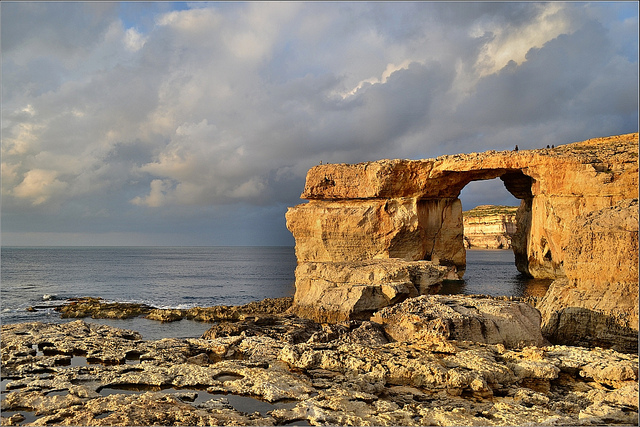Why Language Will Keep Evolving
Table of Contents
woodleywonderworks/Flickr
Some people are concerned that ‘minority languages’ such as Maltese will stop evolving and will eventually die off. We explore what the best options are to encourage the continued use of these languages, and whether or not a language can ever truly cease to evolve.
In some circles, speakers of uncommon languages are concerned that their respective languages (and by proxy, their cultures) will eventually stagnate. The ever-increasing rate of globalization enables more and more languages to borrow words from one another, further fuelling concerns.
While science and the study of how and why humans first started communicating with each other suggest that language will never stop evolving, many fear the power of more widely spoken languages to overly (and in some opinions, erroneously) influence minority languages.
Is Stagnation the Issue?
Let’s use Maltese – a language spoken almost solely on the island of Malta, off the coast of Italy – as an example. There’s a rousing debate going on in The Times of Malta over whether or not Maltese is stagnating or evolving. They further report that use of Maltese in national university exams, for example, has been subject to discussion, as has been the language pronunciation of newscasters, pre-recorded mobile phone greetings, and more.
At the heart of this debate is the following issue: whether or not Maltese as a language should continue to borrow words and pronunciation from Italian and English. The other option is to take a page from the book of the Québécois and regulate where and how much each of their official languages may be spoken or written.

Robert Pittman/Flickr--The Azure Window, on the coast of Malta
On one hand, some writers insist that more widely spoken languages like Italian and English are encroaching on the island and corrupting (some writers use the term “mutilating”) Maltese culture (interestingly, the newspaper in which they are writing publishes their work in English. Moreover, English is, in fact, the second official language of Malta.)
On the other hand, other writers argue that to limit foreign influence in the Maltese language would hurt its growth, as well as its speakers, as young people would struggle to find words for new technology and phenomena.
According to these writers, the people of Malta are faced with two choices. They can either allow Maltese to be assimilated into more widely spoken languages or to wall off their language altogether so that it is impervious to encroaching, “corrupting” influences. In their minds, both options would cause the Maltese language to die off--in the first case, from being subsumed by more dominant cultures, and in the second, from disuse.
The Middle of the Road
There is, however, another option. Michael Frank Owen said it best: “Minority languages are very delicate flowers which need careful pruning.” It’s natural for languages to grow and change over time (we covered some other recent evolutions in languages.)
Evolution does not mean stagnation, nor does it need to mean complete assimilation at any point. Evolution means natural change (no, really--that’s literally the definition, according to OED!). We agree that languages are an important part of a cultural patrimony, but that preservation shouldn’t be at the expense of stifling growth.
Languages are living. Delicate flowers perhaps, but still living, which means that the biggest threat to their continued survival are challenges to growth and evolution, and not adoption of traits from other languages.
Evolution of Language
So, how does language evolution happen in the first place? To understand, we need to look back into the origins of language itself. The human capacity for speech is one of the most-researched and least-understood phenomena in social science.
In an article from Wired magazine, researchers in the field demonstrate just how difficult it really is to pinpoint how languages evolve. In short, language evolution does not follow a linear if/then structure; instead, languages take ever-more-divergent paths in how their vocabulary, grammar, and syntax are formed.

Luis Alejandro Bernal Romero/Flickr--Evolution isn’t just for finches and tortoises, you know
There’s good news here for people concerned with the corruption of their minority language. Namely, because grammar and syntax are so divergent and generally language-specific (obviously, languages in the same families will have some similarities), most of what different languages adopt from one another are individual words and phrases. In short, it is unlikely that Maltese will ever be completely altered, as it will still retain individual constructions, grammar, and the like.
Languages Won’t Stop Evolving
If a language is walled off from its fellows, it will begin to die. This much is obvious as young people and new speakers search outside of their language to find words for new experiences (SMS texting, for example--a word that is most certainly not available in classic Maltese). As languages have died off, so too have many cultures in which they were spoken, according to the Telegraph. Language is an important cornerstone for any national or ethnic identity.
If you’re interested in helping to preserve other cultures by learning a ‘minority’ language, we have you covered! You can also request a specific language course by contacting us; we would love to hear from you.
Current research demonstrates that languages will never stop evolving. So, cultural critics, there is no need to fear! To ensure that a language continues to grow and thrive, its speakers must embrace the little changes and love to use it, share it with others, and pass it down the generations.



